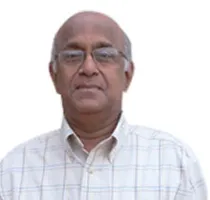"Tokyo went to polls on February 9 to elect a new governor. The winner was Yoichi Masuzoe who stood as an independent candidate, supported by the ruling Liberal Democratic Party. The election was necessitated because of the resignation of Naoki Inose following his involvement in a financial irregularity. He was the eighth Tokyo governor elected since World War II.
This time, the gubernatorial election was watched with more interest because of precarious issues like China-Japan conflict over Senkaku/ Diaoyu Islands, Abenomics and Prime Minister Shinzo Abe's controversial visit to the Yasukuni Shrine. Also in a world challenged by climate change, resource crises, inequality and other critical problems, it matters a great deal what Tokyo does to build its resilience.
The election this time also gained importance because the people of Tokyo had a chance to have a say on the right leaning policies being pushed by the Abe administration like endorsing nuclear energy, applying the state secret protection law and making a change in the government's constitutional interpretation to allow for the exercise of the right of collective self defence.
Tokyo is the world's largest city-region and is also the site of the 2020 Olympics .The governor of Tokyo presides over Japan's wealthiest and most populated prefecture with a population of 13 million. Its annual 13-trillion-yen ($130 billion) budget rivals that of Sweden and it has 165,000 people on its payroll. It also has a city -region GDP of about USD 1.5 trillion, nudging out New York City. According to CNN Money's 2011 ranking, 51 of the Fortune Global 500 companies, largest number in the world are based in Tokyo.
Electoral issues
Yoichi Masuzoe, in his campaign for the gubernatorial election, had supported Abe's relatively successful economic policies (Abenomics). Having served in the past in the ministries of Health, Labour and Welfare, Masuzoe wanted to make the 2020 Olympics, scheduled to be held in Japan a world class affair and the best ever, build child care facilities, promote jobs for women and make Japan better prepared for dealing with disasters.
Initially, Masuzoe did not get the support from the LDP members, as he had been expelled from the party after he left it in 2010, when it was an opposition party. However his position got strengthened within the LDP when his gubernatorial opponent, Morihiro Hosokawa, a former prime minister, promised to stop all nuclear power generation immediately as part of his campaign strategy. He also had the support of Junichiro Koizumi, a popular former Prime Minister.
Hosokawa came third in the election, after lawyer Kenji Utsunomiya, who also opposed nuclear power in Japan. Toshio Tamogami, a former air force chief of staff, who also campaigned for pro-nuclear policies, came fourth. Hosokawa put extra weight on his anti-nuclear drive, while Utsunomiya treated nuclear energy and other issues more equally. There were calls for a unified candidate to challenge Masuzoe. However, Hosokawa and Utsunomiya did not agree to that idea. The voter turnout in the election was at 46.14 percent, the third-lowest in history because of heavy snowfall that took place a day before the polling day.
Masuzoe did not make energy policy a prime focus of his election campaign as compared to his opponents. However, he did say that Japan should eventually reduce its dependence on nuclear power as a source for generating energy. He reiterated this stance even after winning the election, adding that he wanted to raise the share of renewable energy sources in Tokyo's electricity supply. The public trust for nuclear energy had been battered by the March 2011 disaster at the Fukushima nuclear power plant.
According to many surveys, the voters did favour abandoning nuclear power, either immediately or in the long run. But these surveys also indicated that voters attached considerable importance to issues like jobs and the economy, the ageing population and welfare, along with energy policy.
Masuzoe's victory and its implications
The widely-expected victory of Masuzoe has come as a relief for Abe, who had suffered a setback in another local election in Okinawa last month. According to observers, Masuzoe's win has provided a boost for Abe and will strengthen his hands on nuclear matters. Masuzoe, like Abe, had said that the country's nuclear reactors are lying idle after the Fukushima crisis and that they should be activated.
"While people do want a gradual contraction of nuclear energy, an immediate move to zero nuclear option, according to them, will be impractical", says Koji Nakakita, Japanese political science professor at Hitotsubashi University, Tokyo.
While Prime Minister Abe might be thinking that Masuzoe's win will help him carry forward his pro-nuclear energy plans, Hosokawa and Koizumi are determined to continue and intensify their campaign for a nuclear free Japan. So, one can say without much hesitation that the nuclear issue continues to remain as open as before the elections.
(Prof K.V. Kesavan is a Distinguished Fellow while Ateetmani Brar is a Research Intern at Observer Research Foundation, Delhi)
"
The views expressed above belong to the author(s). ORF research and analyses now available on Telegram! Click here to access our curated content — blogs, longforms and interviews.

